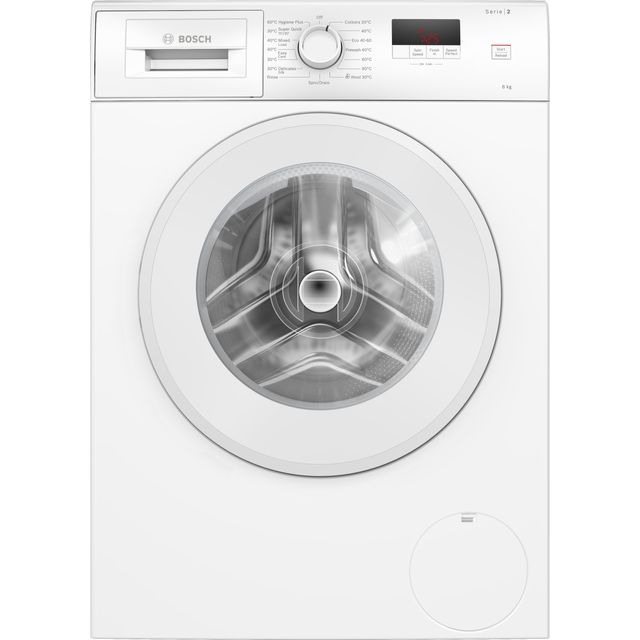Our site uses cookies to give you the best experience. or continue shopping if you're happy.
Accept & closeWhen Should You Replace Your Washing Machine?
Katy Roberts, washing machine expert explains how often you should replace your washing machine.
How often should you replace a washing machine?
The lifespan of a washing machine will depend on a few different factors including how often you use it, how often you clean it and brand and model. However, in general, if you look after your washing machine it should last around 10 years.
Will an older machine cost more to run? How much will it add to your bills?
An older washing machine is likely to be less energy-efficient than a newer model, which means it will use more electricity and water per cycle. Additionally, wear and tear can cause older machines to work harder, further increasing energy consumption.
So it may be worth upgrading to a new model if you’ve had your washer for more than 10 years. Depending on your usage, the difference in energy consumption between an old and a new washing machine can lead to a noticeable increase in your monthly electricity bill.
What problems can occur with older machines?
There are certainly some things to look out for if you think your washing machine needs replacing. Typically washing machines nearing the end tend to make unusual noises or vibrations during a wash, which indicates there may be worn-out bearings or other internal issues.
An obvious error to watch out for is leaking. Persistent leaks or even rust on the exterior are signs the washing machine’s structure may be compromised, which can lead to poorly washed clothes or frequent machine breakdowns.
Tips to keep a washing machine working well
If you’re trying to prolong your washing machine’s life, there are some steps to take. Overloading your washing machine can lead to poor washing performance along with increased wear and tear of your appliance. To combat this, leave one hand’s space between the top of the washing and the drum.
Another trick to try would be ensuring your machine is cleaned regularly to keep any mould or odour from damaging the appliance. Once a month, try running the washing machine on an empty cycle without detergent, on the hottest cycle possible. This will help get rid of any mould or bacteria, especially if you run your machine on cooler settings every wash.

Hotpoint NSWA 1146 WW UK 11kg Washing Machine with 1400 rpm - White - A Rated

Bosch Series 6 WGG24400GB 9kg Washing Machine with 1400 rpm - White - A Rated

Hoover H-WASH 350 H3WPS4146TAMB-80 14kg WiFi Connected Washing Machine with 1400 rpm - White - A Rated

Candy Quick Pro GD 28S6-80 8kg Washing Machine with 1200 rpm - White - A Rated

Hotpoint NSWM 1146 GG UK 11kg Washing Machine with 1400 rpm - Graphite - A Rated

Bosch Series 2 WGE03408GB 8kg Washing Machine with 1400 rpm - White - A Rated

Hisense 5i KitchenFit Series WF5I9043BTFS 9kg WiFi Connected Washing Machine with 1400 rpm - Titanium - A Rated

Miele W1 WSK363 WCS 10kg WiFi Connected Washing Machine with 1400 rpm - White - A Rated

Candy CBW28D4WM5J-80 Integrated 8kg Washing Machine with 1200 rpm - White - A Rated

Haier X Series 5 HW130-BP14357GUUK 13kg WiFi Connected Washing Machine with 1400 rpm - Graphite - A Rated

